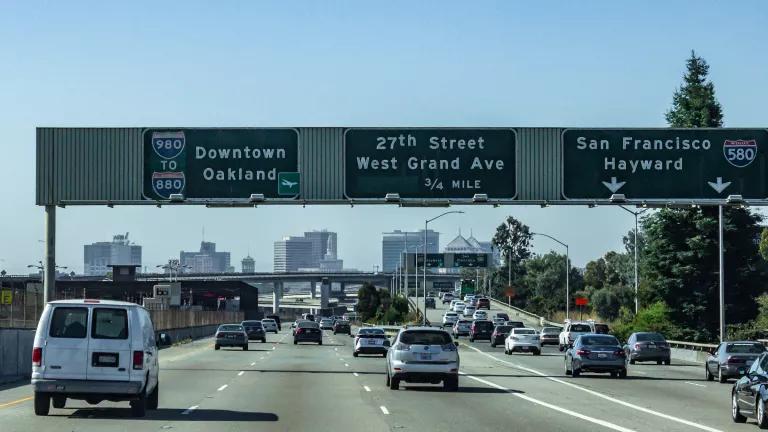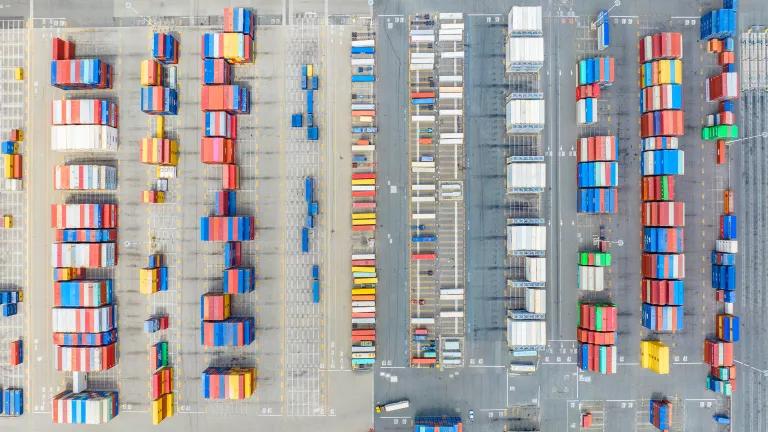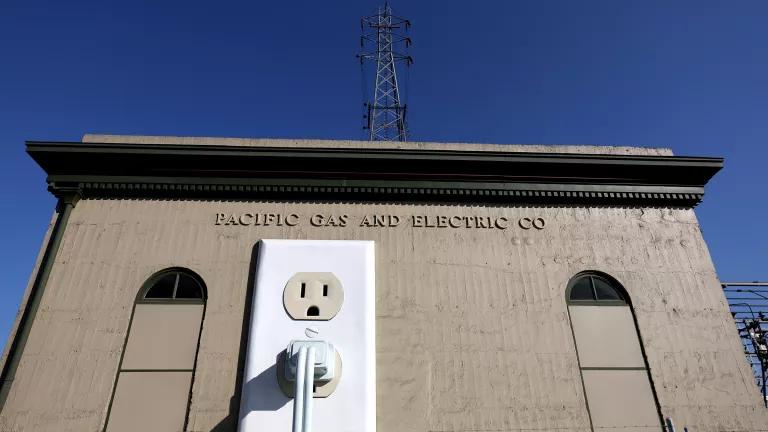
The future of equitable clean transportation is currently on the line in the California Legislature, with an opportunity for the state to show bold leadership and take action on securing billions in public health, climate, and jobs benefits for Californians. California should invest in critical zero-emission vehicle and infrastructure programs to reap those rewards.
Thanks in large part to the Charge Ahead California Initiative—established by Senate Bill 1275 in 2014, making it state policy to electrify the transportation sector in a manner that ensures all Californians are able to realize the benefits electric vehicles can provide—California has a rich portfolio of well-utilized equity-focused programs designed to increase access to zero-emission vehicles and mobility in disadvantaged and low-income communities. These programs are complemented by critical zero-emission medium- and heavy-duty vehicle programs that displace toxic diesel emissions that disproportionately impact low-income and disadvantaged communities that often live near freeways, ports, railyards, warehouses and other facilities.
These programs have done a lot to accelerate electric vehicle adoption in the state, especially in low-income and underserved communities, but there’s still a ways to go to meet the state’s long-term climate, equity, and air quality goals. According to recent California Energy Commission (CEC) report, the state is currently falling behind on its goals of deploying the 250,000 public and shared charging stations needed to support estimated EV adoption in 2025, and faces a gap of roughly 1.3 million chargers from what will be needed to support its 2035 goals. The report concludes that significant and continued state, local, utility, and private funding will be necessary to meet these goals.
However, funding for a significant portion of the state’s critical clean transportation programs is currently set to expire, and the California Legislature needs to take decisive action to keep California’s clean transportation future on track.

Without funding for these programs included in the state’s budget, Californians will lose access to the most effective programs for clean air, improved health, and a stable climate. To avoid this, the Legislature should reauthorize and extend the existing vehicle registration and smog abatement fees, which are currently set to sunset in 2024. These funds provide nearly $300 million annually for clean transportation programs, and the loss of these funds would mean widening existing infrastructure and equity gaps.
Reauthorization of these programs would frontload investment to help realize billions in public health benefits, fuel cost savings realized by electric vehicle drivers, avoided greenhouse gas emissions, and thousands of high-quality jobs.
Accordingly, to help secure California’s equitable clean transportation future, it’s imperative that the California Legislature:
- Codify Equity Requirements to Ensure:
- At least half of the CEC’s Clean Transportation Program funds are used to support transportation electrification for the primary benefit of or primarily serving residents of disadvantaged or low-income communities;
- At least half of those projects and associated charging and refueling stations be located in disadvantaged or low-income communities; and
- No less than 30 percent of projects support zero-emission medium- and heavy-duty vehicles.
- Approve the Governor’s Request for $1.25 Billion for the Clean Transportation Program and Other Zero-Emission Infrastructure and Manufacturing
- These programs provide incentives to support innovation and accelerate the deployment of advanced transportation technologies and fueling infrastructure. This funding would support the expansion of the CEC’s Clean Transportation Program to fund investments in EV infrastructure for light, medium, and heavy-duty vehicles, with strong equity requirements.
- Authorize $500 Million for Transportation Equity Projects
- The state’s oversubscribed equity programs expand the benefits of clean mobility to all Californians and should be funded at a level that meets program demand. The Legislature should also require the Enhanced Fleet Modernization Program focus on zero-emission vehicles.
- Approve the Governor’s Request for $1.4 Billion for Clean Trucks, Buses and Off- Road Equipment
- Programs supporting electrification of medium- and heavy-duty vehicles and reducing health-threatening diesel pollution should be funded at a level consistent with the Governor's May Revise. By replacing high-polluting equipment and trucks, these programs will help deliver clean air for agricultural workers, farming regions, and neighborhoods close to warehouses and ports, in some of California’s most polluted areas.
We’re encouraged by the leadership of Assembly Members Reyes, Ting, Friedman, Luz Rivas, Senator Gonzalez and others who are working to secure new state investments in win-win clean transportation programs. These efforts build off of Governor Newsom’s strong opening bid in his January budget for $1 billion in funding for clean transportation and $3.2 billion zero-emission package in the recent May Revise.
Now’s the time for California to make a robust down payment on its equitable clean transportation future. With these investments and requirements, we can unlock billions in climate, public health, economic, and jobs benefits for all Californians—while charting the course for future transportation equity programs across the country.



